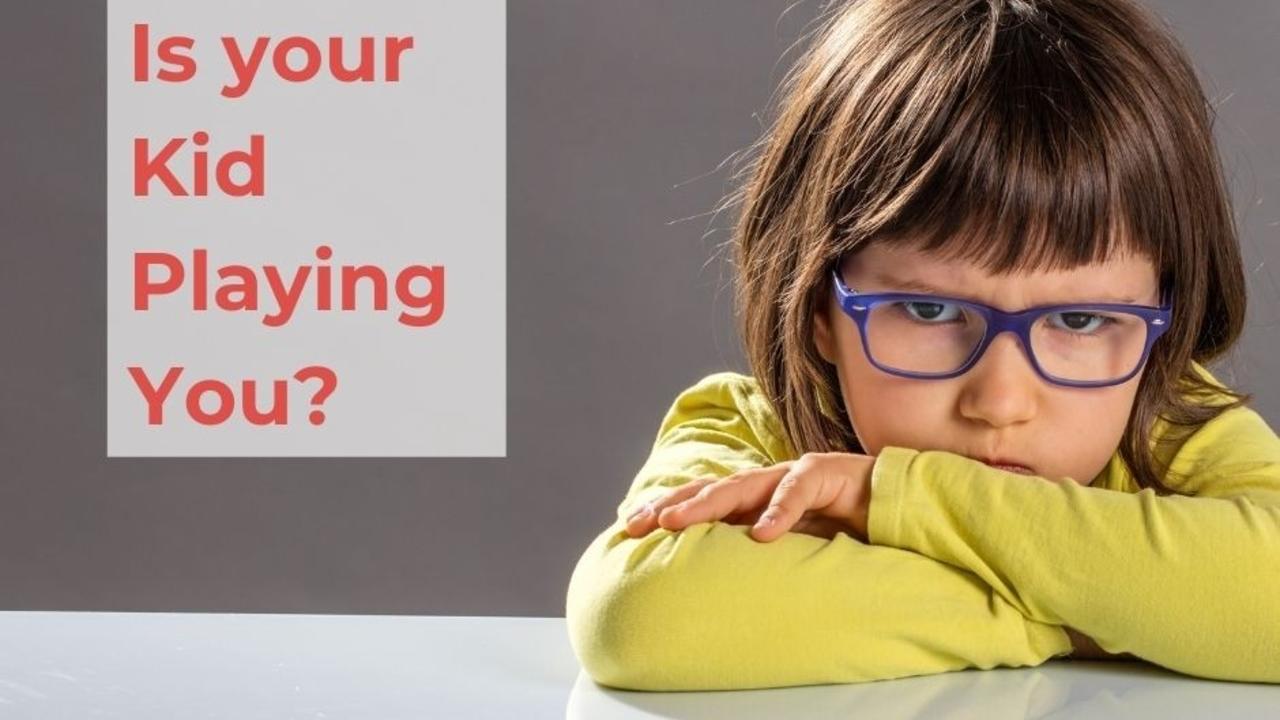Is Your Kid Playing You?
Oct 17, 2020
Have you ever had a parent-teacher conference and thought the kid the teacher described bore no resemblance to the child you know? Or have you noticed that your child behaves differently with their grandparent than with you? Maybe the sitter told you that your kid is happy as a clam when you're not around, but becomes whiny and needy the second you walk in the door?

When I see this pattern with one of my clients, I know two things:
First, this kid is totally capable of good behavior and second, their behavior with my client is tied to their dynamic with them, not to their abilities.
Put another way, their misbehavior doesn't work for them in some situations, so they don't do it. But it does work with their parent, so there's no incentive to reign it in at home.
If your child is behaving better for others than they are for you, here's how to bring that goodness home to roost:
-
Celebrate - Great choices are accessible to your child and they choose them regularly; we just need to figure out how to motivate them to make those choices with you too.
-
Investigate - We have an example of how to inspire your child to behave well, by looking at the moments when they're already doing it! Explore those situations (is it at school? with a sitter? with another parent?). How do people relate to your child in those moments? How do they respond when things don't go well? We can learn a lot from our kids from how they act when we're not around.
-
Experiment - Apply some new ideas with your child. Make sure your new approach incorporates what you've learned from their successful moments, and includes compassion, boundaries and consequences.
Being a good parent doesn't mean being your kid's dumping ground. It is possible to be your child's safe space while maintaining your own boundaries, and while teaching better choices in the future. In fact, the more we respond to children with empathy PLUS boundaries, the more secure our role as trusted confidant becomes, and the more empowered and well behaved our kids will be, with and without us.
If this feels really hard to do alone, I get it. It's tricky to make those observations and understand how to apply them without sacrificing the connection and uniqueness of your relationship.
This is what I do for my clients every day and I'm ready to do it for you too. It starts with a free Discovery Call where I learn exactly what is going on with you and your child, and help you see how to turn it around.
If you're ready to quit the games with your child, with complete love and compassion, click on the link, and let's go!
